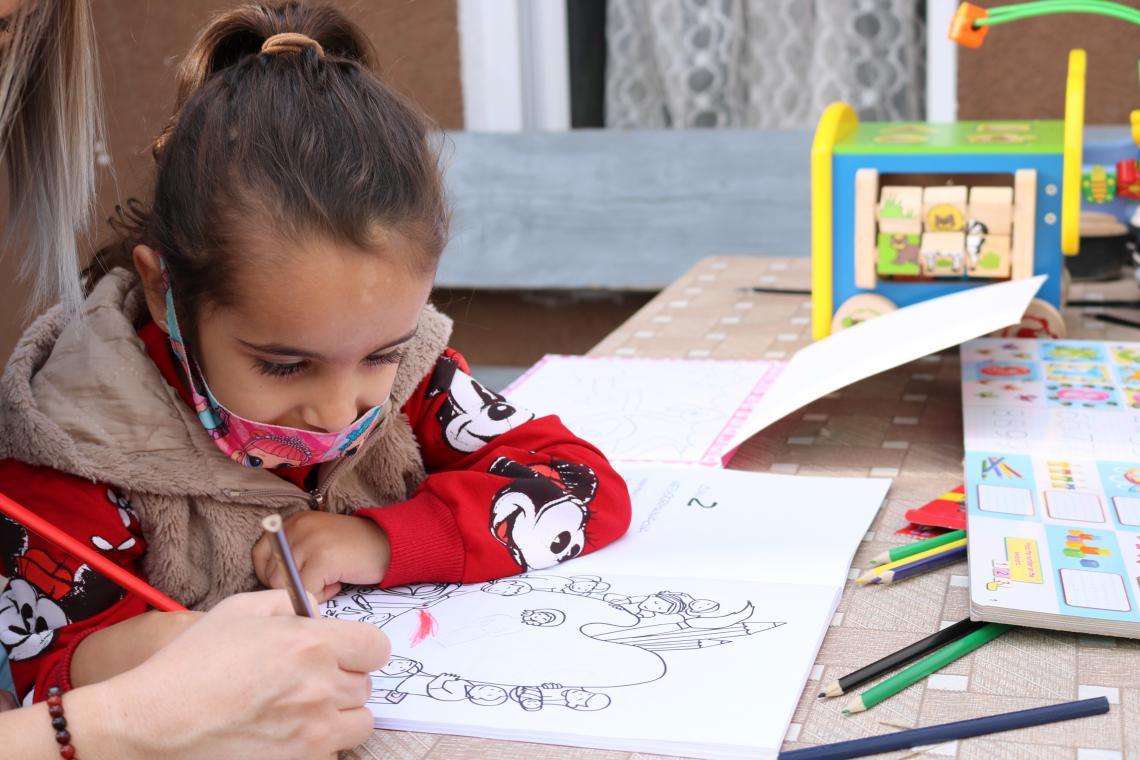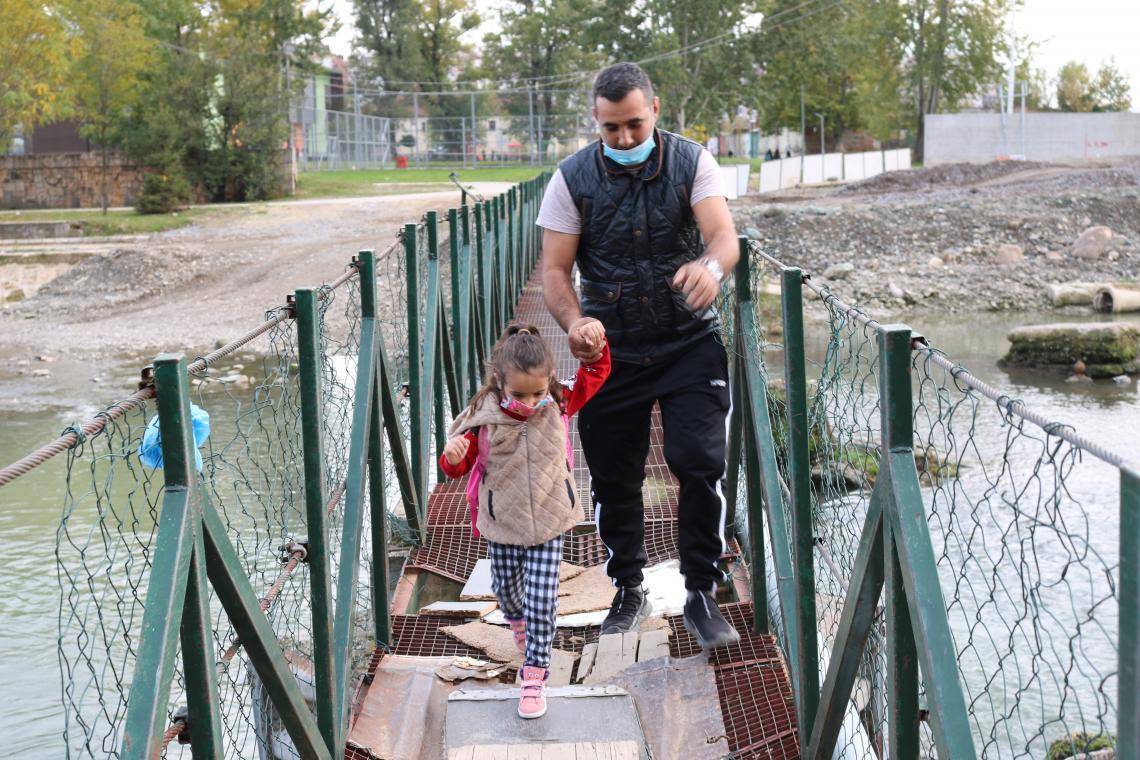Helping Children Thrive: A Lesson to All the Fathers
Guest blog from UNICEF Kosovo
Hazir Krasniqi is a hardworking father of five children. He and his family live in Roma Mahala in Mitrovica, Kosovo - where UNICEF is helping provide specialist support for 6,100 vulnerable children and children with disabilities . For Hazir, education is a foundation for a better future, and that is why he dedicates all his leisure time to spending quality time playing, laughing, singing, and reading together with his children.
Hazir works in a public utility company in North Mitrovica, but also works a second job as an electrician to provide for his family. Although he is quite a busy father, he somehow always finds time to engage with his children and help them with their homework and learning.
“Four of my children are attending school regularly while my youngest, Naida, age 4, is attending the Early Childhood Development program supported by UNICEF,” says Hazir. “It was my father who insisted on the importance of education and that lesson is deeply ingrained in my memory.”
Psychologists working with Caritas Kosovo — UNICEF’s implementing partner — conduct weekly field visits and work directly with families in Roma Mahala in Mitrovica, in order to identify the areas in which they need most help, including psychosocial support, developing and stimulating cognitive, motor, and social skills, self-help and more.
According to a UNICEF analysis in 74 countries, nearly 55% of children aged 3-4 years have fathers who do not play or engage in early learning activities with them. Parents’ engagement is crucial for their children’s development. That is why UNICEF and Caritas Kosovo are raising awareness among parents in Roma Mahala about the importance of participating in their children’s early learning.
Although there is still a lot of work ahead of them, results are already evident; every year, more and more of the children they work with are enrolling in high school. Research also shows that positive interactions with fathers allow children to have better psychological health and life satisfaction in the future. Children whose fathers are involved in their lives during their early years show up for school with more of the qualities required for learning. They are more patient, curious and confident.

As we entered the Krasniqi home, Hazir’s 4-year-old daughter Naida greeted us, timidly hiding behind her father at first. But when she saw the familiar face of Svetlana, a psychologist working with Caritas, she ran into Svetlana’s arms, hugged her, and was ready to talk. Her nickname for Svetlana is Tajna.
"Tajna brings me toys, and then we play and learn colors and shapes, and draw," Naida explains.
When we asked Naida who works with her when Svetlana was not there, she answered “daddy” without any hesitation, a huge smile on her face.
Based on her experience, Svetlana notes that in the Roma community, most parents, especially fathers, are not involved in their children's education, thus leading children to drop out of school. “This family is different. Both parents are truly involved in the education of their children,” she says.
Unfortunately in recent months, COVID-19 made it impossible for Svetlana and her colleagues to work directly with Naida and other children in the community. To ensure that there was no gaps in the children’s development, they switched to online lessons.
“During the online classes, we had to involve the parents more than usual, and then we asked them to do the homework with their children to see if children had made any progress. For a whole week, we were following their work, and Hazir was chosen as the parent of the week, as someone who was the most engaged in working with his child,” Svetlana explains.

Svetlana has been working with Naida for a year now, and she says that Naida has made great progress. “Naida is a particularly good student, very cooperative, not only engaging in tasks that are given to her, but she sometimes also suggests things she would like to learn.”
Just as we were leaving the Krasniqi family, Naida’s best friend, 3-year-old Amira, came to visit. Since Naida was already drawing, Hazir took the opportunity to teach them both how to draw a perfect rectangle. This father-daughter duo happily engage in learning activities, a model to be replicated by other fathers in the community.
